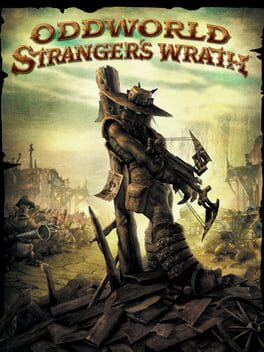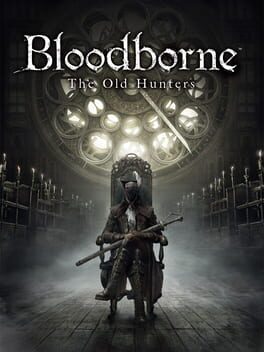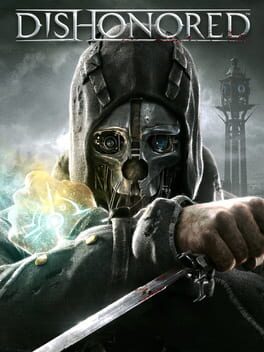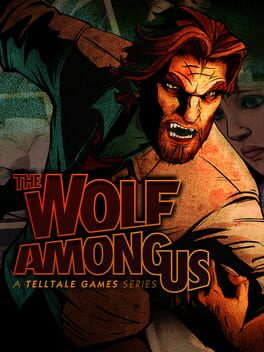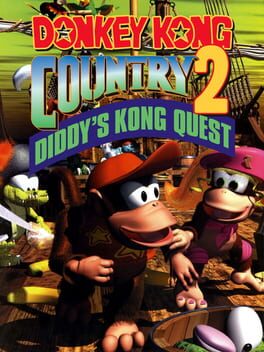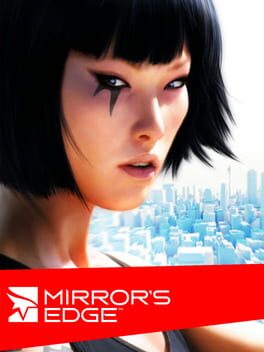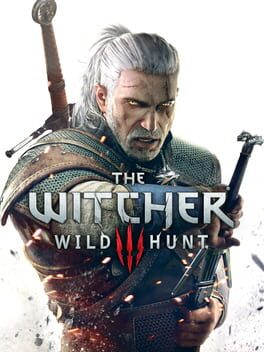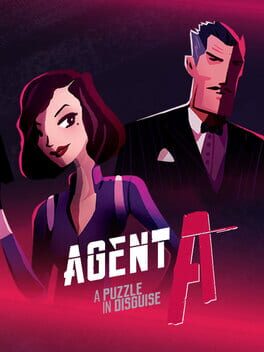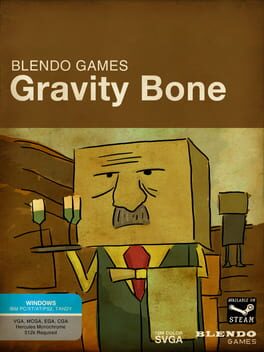sam_gray
A fun, imaginative Western pastiche with an explicit focus on capitalism that eventually morphs into something deeper - one that really acknowledges the racial and historical weight of its American iconography. The other Oddworld games tackle this too, but they're logy where this is three-dimensional, free, and exciting. By default, one of the best games about the transgender experience.
Has a weird structure, beginning on a brutally hard note (the Ludwig fight), going narratively explicit in the middle, and finishing somewhere primal and hard again. Orphan of Kos is a great fight, and some of the environmental design is good, but I still have the same problem with Bloodborne: it's at once too vague to be satisfying and not abstract enough to work as a mood piece. Comparisons to the original Dark Souls are unfavourable - that was all about light and shadow and could be enjoyed as a kind of perverse origin myth, whereas this is more a series of disjointed setpieces with tenuous thematic connections. It's trying to evoke dream logic, which is at odds with the grounded, you-are-there nature of the gameplay. Which is maybe the point, but it doesn't always work for me. And fuck Laurence.
2012
Glad that the whole "binary moral choice" trend has died down, because it's a mistake here. I felt compelled to hinder myself and play the game in a less fun, non-lethal fashion up until the betrayal, at which point I thought it might be interesting to start killing people. Didn't matter - I still got the lame ending where everything is roses and all the robot people love you. It's a credit to the sturdy blink mechanic and open-ended map design that I still liked this game.
1996
The later ones fix the controls, the awkward camera, but this is still maybe my favourite 3D Mario platformer because every level is a puzzle with multiple solutions, a space to be explored instead of a route to follow directions. The atmosphere is palpable and strangely melancholy, abetted by one of the greatest soundtracks of all time. And Mario himself is a physical presence - he sounds like an easily terrified middle-aged man, all whoops and groans, and he plays like one too, e.g. using his whole body to turn. Which is funny, but also personable in a way that's since been lost. He's a corporate icon now instead of someone willing to endure immense physical pain in order to get laid.
2012
2013
Silly, but I have a soft spot for the Telltale formula. The detective story pairs well with the gameplay, which gives you a nagging sense of always missing out on something due to the choices you make. It's also a challenge to the player's God complex: playing as a cop (literally a lone wolf) who must adapt to his community, where there isn't yet an institution he can hide behind. Obviously hampered by some blatant telegraphing, stilted dialogue, and a terrible villain (Bloody Mary) - but intriguing enough to be sad that its original creative team never got to continue the story.
I gave up on Donkey Kong Country somewhere around the ice levels, though I'd been tempted to all the way back at the first minecart hellscape. Catching the player by surprise with a precise jump or off-screen enemy they have no time to prepare for is old-school sadism, aimed at people who'd rather memorise a layout than question its design. I've got no patience for it.
This, on the other hand, is a gem. It makes the small but significant change in its design philosophy that the player should be prepared for the challenges they have to face. So each level tells you how to play it at the start, then slowly ramps up the difficulty so you have only yourself to blame for mistakes. On a macro level, the difficulty increases steadily as well - the game builds on its own architecture while constantly throwing in new surprises. And thank God for Trixie Kong. Her flutter is a game changer, especially with the emphasis on vertical levels. Though it should be said that the two partners feel balanced this time, instead of cumbersome Donkey Kong dragging down his own game.
I still have a few issues with the shaded graphics, which sometimes make confusing e.g. what is and isn't a ledge. But in every way - not just gameplay-wise but musically, stylistically - it's a terrific improvement.
This, on the other hand, is a gem. It makes the small but significant change in its design philosophy that the player should be prepared for the challenges they have to face. So each level tells you how to play it at the start, then slowly ramps up the difficulty so you have only yourself to blame for mistakes. On a macro level, the difficulty increases steadily as well - the game builds on its own architecture while constantly throwing in new surprises. And thank God for Trixie Kong. Her flutter is a game changer, especially with the emphasis on vertical levels. Though it should be said that the two partners feel balanced this time, instead of cumbersome Donkey Kong dragging down his own game.
I still have a few issues with the shaded graphics, which sometimes make confusing e.g. what is and isn't a ledge. But in every way - not just gameplay-wise but musically, stylistically - it's a terrific improvement.
2008
2009
I'd give the edge to Dark Souls, which has one of my favourite game mechanics ever - the Estus Flasks - and that incredible, interconnected journey to Anor Londo, which takes the player down into a literal Hell and then back up to Mount Olympus to become a God. And I like the fact that Firelink Shrine is mere seconds away from danger, whereas it's a bit too easy to retreat into the Nexus here - even if the music changes and the murderous Yurt undercut its safety somewhat.
Still, what a game! Five distinct areas, overflowing with atmosphere, and with some of the best level design I've ever seen. Specialising in magic made some of the boss fights trivial, but getting to them is all kinds of incredible. Tower of Latria is an obvious standout, though all of them work together in harmony, and the player-created structure - which lets you move between levels, using the items you've found in one to help you out in the other - is so inspired. My favourite might actually be the swamp in the Valley of Defilement, which, by removing your depth perception and mobility, becomes infinitely terrifying. And even the ending is good, tempting you with the promise of more Souls for when you inevitably play through it again. I wish they hadn't bothered with a remake. It's basically perfect as it is.
Still, what a game! Five distinct areas, overflowing with atmosphere, and with some of the best level design I've ever seen. Specialising in magic made some of the boss fights trivial, but getting to them is all kinds of incredible. Tower of Latria is an obvious standout, though all of them work together in harmony, and the player-created structure - which lets you move between levels, using the items you've found in one to help you out in the other - is so inspired. My favourite might actually be the swamp in the Valley of Defilement, which, by removing your depth perception and mobility, becomes infinitely terrifying. And even the ending is good, tempting you with the promise of more Souls for when you inevitably play through it again. I wish they hadn't bothered with a remake. It's basically perfect as it is.
1998
Important, a classic etc. that nonetheless vacillates wildly between being brilliant and infuriating - it’s a bit of a chore to actually play. The top-down perspective makes the actual 3D space irrelevant for large stretches as the radar does the heavy lifting, though there’s still a tendency to get shot from off-screen, and actually aiming at anything is a nightmare. The characters are all quite badly written, vomiting up their backstories and overexplaining every single moment of subtext ad naseum to Snake’s increasingly hilarious bewilderment, leading to exchanges like: “I’m feeling sad.” “Sad?” “Yes, sad. It’s when the endorphins in your brain don’t fire enough, leading to a lack of energy and motivation.” “I didn’t know your brain controlled your feelings...”
But something that still felt fresh was the Codec, where every one of your contacts says something different every time you walk into a different room, or do something notable - e.g. equipping the cigarettes to get scolded, or repeatedly ringing one until they ignore you. There’s a conscious effort to erase the barrier between gameplay and “story”, which is usually treated as a separate, isolated quality in video game criticism instead of inherent to game-feel. I was impressed with the torture sequence - not only is failure here an option, but it’s the more interesting one, undermining the pastiche of Hollywood action heroics and paying off with a suitably down climactic beat. And while I wasn’t always impressed with the boss fights (especially the gimmicky Psycho Mantis) there’s an admirable sense of experimentation in making them all different. The pacing and build-up to each works well, and there’s some effort to complicate our relationship to them as “enemies”, e.g. Grey Wolf embracing pain. (My favourite was Vulcan Raven and his mini gun, which plays to all the strengths of the stealth gameplay.)
Admirably anti-war in its sentiments, also pretentious, sexist, and with laughable stabs at pathos - though this is, as far as I can tell, Hideo Kojima’s whole deal. Auteurism sometimes demands you take the rough with the smooth.
But something that still felt fresh was the Codec, where every one of your contacts says something different every time you walk into a different room, or do something notable - e.g. equipping the cigarettes to get scolded, or repeatedly ringing one until they ignore you. There’s a conscious effort to erase the barrier between gameplay and “story”, which is usually treated as a separate, isolated quality in video game criticism instead of inherent to game-feel. I was impressed with the torture sequence - not only is failure here an option, but it’s the more interesting one, undermining the pastiche of Hollywood action heroics and paying off with a suitably down climactic beat. And while I wasn’t always impressed with the boss fights (especially the gimmicky Psycho Mantis) there’s an admirable sense of experimentation in making them all different. The pacing and build-up to each works well, and there’s some effort to complicate our relationship to them as “enemies”, e.g. Grey Wolf embracing pain. (My favourite was Vulcan Raven and his mini gun, which plays to all the strengths of the stealth gameplay.)
Admirably anti-war in its sentiments, also pretentious, sexist, and with laughable stabs at pathos - though this is, as far as I can tell, Hideo Kojima’s whole deal. Auteurism sometimes demands you take the rough with the smooth.
The most fun to be had is definitely in the early stages, after you've accepted the awkward combat, animations, character models, writing, etc. A powerful video game hero brought low by using their detective powers to help local townsfolk in oddball mysteries: fine. Fun, even. But the game gradually discourages this by assigning levels to quests, keeping you on the rails of the main plot. And Jesus Christ, what a slog. No wonder most don't even finish it.
It's not like the pursuit of the MacGuffin-y missing person is an uncommon plot device. But this is hardly The Searchers - it's a wild goose chase. I haven't played the previous two games, so it's possible there's an emotional element I'm missing - although as far as I'm aware, Ciri and Yennifer don't even appear in those, as Geralt suffers from amnesia. Perhaps the point is that our main character has finally pieced together his life, and needs that illusive final piece to feel whole again.
But where is that in the writing? There's so much of it here, so much stuff, and almost none of it amounts to anything. Sure, you can get a different cutscene here, a romance there, but the nature of the game is that it wants to flatter you at every turn, give you a chance to try everything. That is, unless you don't play catch enough with your boring daughter - a moral choice that doesn't announce itself as such, which could be bold if there was any attempt at complex human psychology. But no: getting the "bad" ending is a "gotcha!", a conservative scolding that punishes you for supposedly thinking of yourself as the hero, even though the game encourages that line of thinking with Geralt's increasingly cop-like domination over quests with very limited outcomes.
The characters move like mannequins - they repeat themselves, they phase through each other, they whine and curse but seldom feel particularly real. They're all part of the game's arrogance, which uses constant cutscenes and a sat-nav of a minimap to make sure the player does everything they're supposed to. And even if they do, the game might crash or bug out. I'm not surprised that Cyberpunk is bad - this seems to be the accepted state of the open world by this point, something that tells the player to stand in awe of its grand design while resolutely underwhelming on a moment-by-moment basis; until the sloppiness becomes accepted, even routine.
One final thought: what is going on with all the female character designs? It's so blatantly misogynistic that I'm almost surprised there wasn't more uproar. The female soldier who gets told off for continually wearing her blouse open - what is this, the 1960s? Rancid.
It's not like the pursuit of the MacGuffin-y missing person is an uncommon plot device. But this is hardly The Searchers - it's a wild goose chase. I haven't played the previous two games, so it's possible there's an emotional element I'm missing - although as far as I'm aware, Ciri and Yennifer don't even appear in those, as Geralt suffers from amnesia. Perhaps the point is that our main character has finally pieced together his life, and needs that illusive final piece to feel whole again.
But where is that in the writing? There's so much of it here, so much stuff, and almost none of it amounts to anything. Sure, you can get a different cutscene here, a romance there, but the nature of the game is that it wants to flatter you at every turn, give you a chance to try everything. That is, unless you don't play catch enough with your boring daughter - a moral choice that doesn't announce itself as such, which could be bold if there was any attempt at complex human psychology. But no: getting the "bad" ending is a "gotcha!", a conservative scolding that punishes you for supposedly thinking of yourself as the hero, even though the game encourages that line of thinking with Geralt's increasingly cop-like domination over quests with very limited outcomes.
The characters move like mannequins - they repeat themselves, they phase through each other, they whine and curse but seldom feel particularly real. They're all part of the game's arrogance, which uses constant cutscenes and a sat-nav of a minimap to make sure the player does everything they're supposed to. And even if they do, the game might crash or bug out. I'm not surprised that Cyberpunk is bad - this seems to be the accepted state of the open world by this point, something that tells the player to stand in awe of its grand design while resolutely underwhelming on a moment-by-moment basis; until the sloppiness becomes accepted, even routine.
One final thought: what is going on with all the female character designs? It's so blatantly misogynistic that I'm almost surprised there wasn't more uproar. The female soldier who gets told off for continually wearing her blouse open - what is this, the 1960s? Rancid.
2001
A game about architecture, first and foremost, with the camera either positioning itself at the best angle to reveal the space, or making it clear to the player that they have to explore the offscreen space. Not exactly a masterpiece - the puzzles are sometimes perfunctory, and the combat is actively annoying - but there is something stirring about the hand-holding mechanic, the controller vibrating with Yorda’s every movement. She’s a fragile, real presence, with the standard “escort quest” frustrations - get over here, do that - a conscious part of the experience. (There’s a psychosexual triangle to be drawn between the virginal Yorda, the jealous mother, and possessive teenage boy Ico, whose “horns” are eventually removed/castrated.) All of which to say I found the ending very powerful. The castle we’ve grown so familiar with crumbles, and the power dynamic between the pair reverses - we are made helpless by a beautifully-scored cutscene, the untranslated farewell a perfect note to end on. (The epilogue is a mistake.) Clearly inspired many a developer to make their game as pretentious as possible, though Hidetaka Miyazaki would take the ball and run with it with Boletarian Palace.
2015
2008
